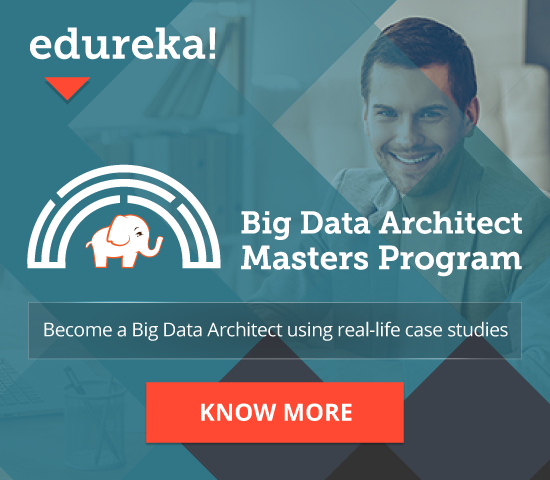Metacognitive Ability: Distinguishing Human Metalearning from AI
Golden light streams through the crack of a ceiling. The image symbolizes the transformative power of research inquiries.
Researchers from the University of Tsukuba have conducted a pioneering study that offers profound insights into the world of metacognition and its implications for both human and artificial intelligence. Led by Tauana Cunha, a postdoctoral researcher at the University of Tsukuba, the study aimed to shed light on the fascinating concept of metacognition and how it regulates implicit motor learning in humans and AI systems. Collaborating with Harvard University and the University of Copenhagen, the team delved into the neural basis of metacognition, seeking to uncover the distinct traits that set human metacognition apart from its AI counterparts.
In the study, the researchers compared the metacognitive abilities of humans and AI in optimizing rewards and minimizing punishments. Surprisingly, the findings revealed a remarkable asymmetry in human responses. While artificial intelligence demonstrated equal metacognitive abilities for rewards and punishments, humans displayed a nuanced behavior, adjusting memory retention in response to gains and learning speed in response to losses.
This groundbreaking discovery not only sheds light on the intricacies of human cognition but also presents potential applications in various fields, including post-stroke rehabilitation training and educational settings. As the research deepens our understanding of metacognition and continuous learning, it becomes increasingly crucial for businesses and individuals to harness this knowledge for future growth and adaptation in an ever-changing world.
Groundbreaking Study Reveals Human Metacognition's Asymmetry Compared to AI in Implicit Motor Learning
Here are some ways this study's findings could impact business:
Learning and Training Programs: Understanding metacognition and how it impacts learning abilities can inform the design of more effective learning and training programs for employees. By incorporating insights from human metacognition, businesses can tailor training approaches to maximize skill acquisition and retention in response to different reward and punishment mechanisms.
Human-AI Collaboration: As AI becomes increasingly prevalent in various industries, understanding the differences between human and AI metacognition can aid in developing better human-AI collaboration strategies. Businesses can leverage the strengths of each, with AI providing perpetual optimality in decision-making and humans contributing their asymmetric metacognitive abilities to adapt to varying situations.
Incentive Systems: The research highlights the asymmetric response of humans to monetary gain and loss, indicating that reward and punishment mechanisms have different impacts on learning and memory retention. Businesses can optimize their incentive systems, considering the specific behavioral responses of employees to rewards and punishments, thereby enhancing motivation and performance.
Post-Stroke Rehabilitation and Health Care: The study's application in post-stroke rehabilitation training can have profound implications for the healthcare industry. By tailoring rehabilitation programs based on the asymmetric responses of patients to rewards and punishments, healthcare providers can potentially improve patient outcomes and recovery rates.
Consumer Behavior and Marketing Strategies: Understanding the neural mechanisms underlying human metacognition can offer insights into consumer decision-making processes. Businesses can use this knowledge to develop targeted marketing strategies that leverage consumers' cognitive responses to rewards and losses, influencing their purchasing behavior.
AI Algorithm Development: The research emphasizes the differences between human and AI metacognition. By incorporating insights from human metacognitive behavior, AI algorithms can be further optimized to mimic and adapt to human-like learning and decision-making processes, making AI systems more efficient and adaptable.
Psychological and Behavioral Research: The study's findings provide valuable insights into human cognition and decision-making. Businesses involved in psychological and behavioral research can use this information to delve deeper into understanding human metacognition and its impact on various aspects of life, leading to potential breakthroughs in human behavior analysis.
Education Technology: EdTech companies can benefit from this research by integrating the knowledge of human metacognition into their platforms. Personalized learning approaches that consider individual cognitive responses to rewards and losses can enhance the effectiveness of educational technologies.
Overall, the study on metacognition bridges the gap between AI and human cognitive processes, offering a wealth of opportunities for businesses to optimize learning and decision-making strategies, enhance human-AI collaboration, and better understand human behavior and cognition. As businesses continue to embrace technology and data-driven approaches, the incorporation of metacognitive insights can lead to more efficient and effective operations across various sectors.
Red lights rise into a night sky. This image symbolizes the healing power of research to reveal what was previously unseen.
Metacognition: Continuous Learning
Amidst the enchanting tapestry of metacognition, one concept shines as a guiding beacon for individuals and businesses alike – the art of continuous learning. As the narrative unfolds, we witness how the human mind, with its metacognitive abilities, embarks on a never-ending journey of self-improvement and growth.
In this realm, learning is not confined to a single moment in time but becomes an ever-evolving process, akin to a river flowing endlessly, shaping the landscape of knowledge. Human metacognition, with its asymmetric response to rewards and punishments, embraces the notion of continuous learning with open arms.
Unlike artificial intelligence, which adheres to perpetual optimality, the human mind recognizes the importance of dynamic adaptation. The quest for monetary gain instills a desire to remember, to retain the essence of success, while the specter of monetary loss fuels the urgency to learn swiftly and adapt.
In the realm of business, the concept of continuous learning takes center stage as organizations recognize the profound impact of fostering a culture of growth and self-improvement. Employees, like avid explorers, venture into uncharted territories of knowledge, seeking to understand, control, and optimize their learning abilities.
From learning and training programs that evolve with the changing needs of employees to human-AI collaborations that harness the ever-improving capacities of both, continuous learning paves the way for innovation and excellence.
Imagine a world where incentive systems not only reward achievements but also inspire individuals to embrace challenges and embrace mistakes as stepping stones towards growth. In this world, businesses cherish the power of learning, not merely as a means to an end, but as an intrinsic part of their identity.
Post-stroke rehabilitation programs embrace the ethos of continuous learning, recognizing that every patient's journey is unique, with individualized adjustments and adaptations to promote recovery.
Even in the realm of marketing, businesses harness the insights from human metacognition to create campaigns that resonate with consumers on a deeper level. The concept of continuous learning empowers them to refine their strategies, adapting to the ever-shifting landscape of consumer behavior.
In the corridors of education technology, personalized learning emerges as the pinnacle of advancement, recognizing that each learner's voyage is a perpetual quest for knowledge, tailored to their unique metacognitive responses.
The concept of continuous learning intertwines with the very fabric of human nature, for in the pursuit of knowledge, we find fulfillment and purpose. It elevates businesses beyond mere transactions, transforming them into beacons of growth and progress.
As we continue our journey through the land of metacognition, the art of continuous learning serves as a constant reminder that the pursuit of knowledge knows no bounds. With each step forward, we unlock the potential of our minds and the boundless possibilities that lie before us. Let us embrace the essence of continuous learning, for in this timeless pursuit, we discover the true essence of human potential and the wonders that await us on this journey of a lifetime.
In a rapidly changing world, continuous learning has emerged as a powerful tool to adapt, thrive, and stay relevant. It is the art of embracing a lifelong journey of acquiring knowledge, skills, and experiences, driven by the desire for personal and professional growth. This comprehensive guide aims to provide you with actionable steps, practical strategies, and the right mindset to embark on your continuous learning journey and unlock your full potential.
Lifelong learning is essential for healthy development. Continuous learning is a principle to enrich people of all ages.
Cultivating the Mindset for Continuous Learning
Embrace Curiosity: Embrace a curious mindset, staying open to new ideas and perspectives. Ask questions, seek answers, and explore the world with a sense of wonder.
Embrace Challenges: View challenges as opportunities for growth. Embracing discomfort and stepping out of your comfort zone foster resilience and pave the way for new learning experiences.
Set Clear Goals: Define clear and achievable learning goals. Outline what you want to learn, why it matters, and how it aligns with your long-term aspirations.
Embrace Failure as a Stepping Stone: Embrace failure as a stepping stone to success. Learn from mistakes, adapt, and use setbacks as valuable lessons to fuel your continuous learning journey.
Building a Learning Habit
Create a Learning Plan: Develop a personalized learning plan. Identify the areas you wish to focus on, and create a structured approach with milestones and timelines.
Diversify Your Learning Sources: Explore various learning sources such as books, online courses, podcasts, webinars, workshops, and peer-to-peer learning platforms.
Prioritize Consistency: Allocate dedicated time for learning regularly. Consistency is key to forming a learning habit that becomes an integral part of your daily routine.
Practice Active Learning: Engage in active learning techniques like note-taking, teaching others, and applying newly acquired knowledge in real-life scenarios.
Leveraging Technology for Learning
Harness Online Resources: Utilize the vast array of online learning platforms and resources available today. Explore platforms like Coursera, Udemy, Khan Academy, and TED Talks.
Join Online Learning Communities: Engage in online forums and learning communities to connect with like-minded individuals and foster meaningful discussions.
Use Learning Apps: Explore educational apps that facilitate continuous learning on-the-go. Apps for language learning, skill development, and mind mapping can be valuable tools.
Embracing Continuous Learning in the Workplace
Seek Learning Opportunities at Work: Participate in training sessions, workshops, and seminars offered by your employer. Take advantage of mentorship programs and internal resources.
Embrace Feedback: Welcome feedback from colleagues and superiors, using it as an opportunity for growth and skill enhancement.
Pursue Projects Outside Your Comfort Zone: Seek out projects that challenge you and push your boundaries. Embracing new roles and responsibilities fosters learning and growth.
Networking for Continuous Learning
Build a Diverse Network: Connect with individuals from different industries, backgrounds, and experiences. A diverse network opens up new perspectives and opportunities for learning.
Participate in Knowledge-Sharing Events: Attend conferences, webinars, and networking events to learn from industry experts and thought leaders.
Engage in Peer Learning: Form or join study groups with colleagues, friends, or online communities. Collaborative learning enhances knowledge retention and fosters a supportive environment.
Continuous learning is a journey of self-discovery, personal growth, and professional success. Embrace the mindset of a lifelong learner, set clear goals, and harness the power of technology and networking to create a dynamic learning experience. Remember, with each step you take, you are unlocking new opportunities, honing valuable skills, and embracing the boundless possibilities of continuous learning. So, embark on this transformative journey, for the pursuit of knowledge knows no limits, and the world awaits your endless potential.
The Significance of Metacognition and Continuous Learning for the Future of Businesses
In the rapidly evolving landscape of the future, businesses face unprecedented challenges and opportunities. To navigate this ever-changing terrain, embracing metacognition and continuous learning becomes crucial for organizations to thrive and maintain a competitive edge. Let's delve into why these concepts hold immense significance for the future of businesses.
Agile Adaptation to Change:
Metacognition enables individuals to monitor and regulate their learning process objectively. This self-awareness empowers employees to identify gaps in their skills and knowledge and take proactive steps to bridge them. In a business context, this leads to agile adaptation to market shifts, technological advancements, and evolving customer demands. Continuous learning empowers employees to stay ahead of the curve and drive innovation within the organization, creating a culture that embraces change and drives growth.
Enhancing Problem-Solving and Decision-Making:
Metacognition enhances critical thinking and problem-solving abilities. By understanding how they learn best, employees can approach complex challenges with confidence and efficiency. Continuous learning fosters a growth mindset, where problem-solving becomes a collective effort, leveraging diverse skills and perspectives. In a business setting, this translates to improved decision-making processes, greater risk assessment, and the ability to seize emerging opportunities.
Boosting Employee Engagement and Retention:
Embracing continuous learning fosters a culture of growth and development within the organization. When employees feel supported in their learning journey, they are more engaged and committed to their roles. This leads to increased job satisfaction, higher retention rates, and reduced turnover costs for businesses. Furthermore, a learning-centric workplace appeals to top talent seeking opportunities for personal and professional growth, attracting skilled individuals to join and stay within the organization.
Nurturing a Learning Organization:
Metacognition and continuous learning contribute to building a learning organization – one that continuously evolves, adapts, and thrives in the face of change. Employees become self-directed learners, taking the initiative to acquire new skills and knowledge. This culture of learning permeates throughout the organization, promoting knowledge sharing, cross-functional collaboration, and a collective pursuit of excellence. A learning organization is more responsive, innovative, and resilient, positioning itself as a pioneer in its industry.
Harnessing the Power of Human-AI Collaboration:
As artificial intelligence becomes increasingly integrated into various business processes, the role of human intelligence becomes even more critical. Metacognition, with its focus on understanding and controlling one's learning abilities, helps employees leverage the strengths of both human and AI capabilities. Continuous learning empowers employees to adapt to AI integration and maximize its potential. This symbiotic relationship between human and AI ensures the optimal use of technology while retaining the human touch in decision-making and creativity.
Preparing for Uncertain Futures:
The future is uncertain, and businesses must be prepared for disruptions and unknown challenges. Metacognition equips employees with the ability to learn quickly, unlearn outdated practices, and relearn new skills. Continuous learning fosters a growth-oriented mindset that sees change as an opportunity rather than a threat. Businesses that embrace these concepts can respond nimbly to emerging trends, shifts in consumer behavior, and technological breakthroughs.
In conclusion, metacognition and continuous learning are not mere buzzwords but the keys to unlocking a future of boundless possibilities for businesses. By cultivating a learning-centric culture, understanding and optimizing individual learning processes, and embracing the power of human-AI collaboration, businesses can position themselves as frontrunners in their respective industries.
As the world hurtles toward the future, metacognition and continuous learning stand as beacons of transformation, guiding businesses to embrace change, unlock innovation, and navigate the uncharted territories of the ever-evolving business landscape.























































